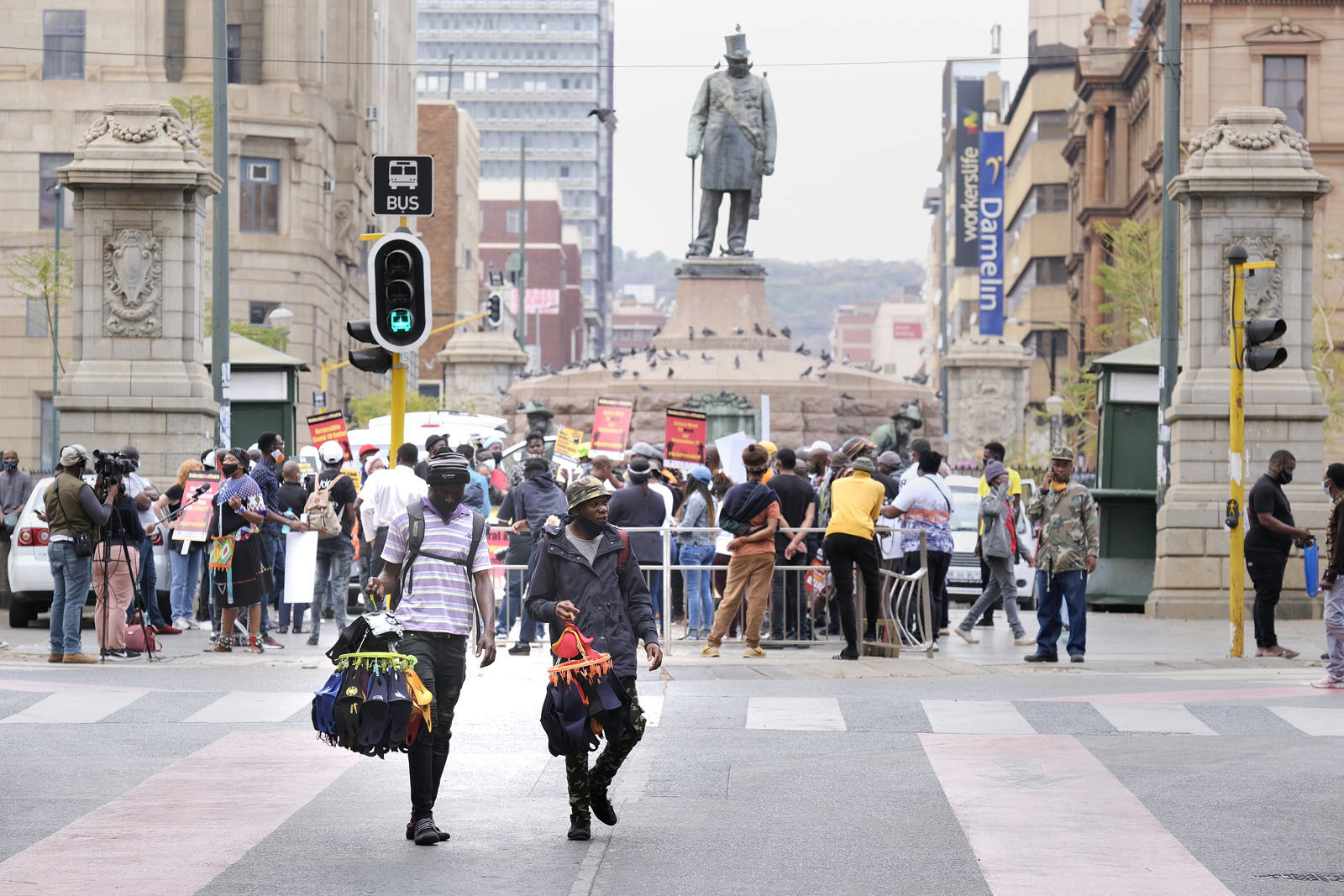SA musicians march to demand government recognition
Protests around the country have raised the issue of bungled Covid-19 relief and the department favouring sports over the arts as the coronavirus lockdown continues to decimate livelihoods.
Author:
17 September 2020

Artists are among those who have been hit hardest by the Covid-19 pandemic and government lockdown. The inability to perform live has led to great financial strain and under level two of the lockdown, much of the entertainment industry remains shut.
In Cape Town and Pretoria, small groups of artists and entertainers gathered for We March as One 4 the Arts. But in Durban, artists opted not to take part in the planned march after 32 of them were arrested on 2 September when they blocked the N3 highway that links Durban and Pietermaritzburg in protest. They appeared in the Pinetown magistrate’s court, where the case was postponed to 23 October. They face a charge of contravening the Regulation of Gatherings Act.
The protests were sparked by the government’s neglect of the arts and entertainment industries, which were the first to close under lockdown regulations. Artists are demanding that the industry be permitted to open by 70%.


On Wednesday night President Cyril Ramaphosa announced that the country would move to level one of the lockdown and that 50% occupancy would now be allowed at venues subject to strict covid-19 protocols.
Despite the Durban protest falling flat, more than 60 creative professionals and cultural activists gathered outside Parliament in Cape Town. “We are seeking regulation and legislation for our industry … Another problem we have is that somehow we now have a sports, arts and cultures department and as we’ve seen many times, sports are always the guys that get the money. And then when they have to come give us something, there’s nothing left for our industry,” said singer and Trade Union for Musicians of South Africa (Tumsa) leader Vicky Sampson.

“We don’t have any benefits, we can’t open a bank account now and buy a house, we can’t buy a car. For seven months, we’ve been sitting out in the cold waiting and relying on our department of arts and culture to give us a little handout … We are not beggars, we are workers.
“Our creative industry contributes to the wellbeing of our country and the world, and yet we have been left out in the cold. Most of the people who have applied for this Covid relief have not got it … We’ve had a first wave and a second wave of relief that has failed us, once again. We are well known and loved worldwide for our beautiful music, our beautiful gifts and talents. It’s only here in South Africa that we are not recognised as workers and people that are powerful beyond measure.”

Failure to deliver
The group came together to hand a memorandum outlining their concerns to Ramamphosa. However, as Parliament was not in session and neither the president nor a representative was able to meet the protesters, the memorandum was emailed on to another official with the intention of getting it on to the president’s desk on Wednesday 16 September. They called on the president, as the father of the nation, and not Minister of Sports, Arts and Culture Nathi Mthethwa because they say he has failed over and over again to deliver for the creative industry.

Tumsa national general secretary Gabriel le Roux, a composer, musician, producer and activist, read the memorandum outside the building. “The second wave of relief funding has had an overwhelming application comeback rate … We have also witnessed those with correct documentation being asked to reapply. In general, the artist relief funding for theatres and arts organisations has been very scattered, ineffective and based on non-realistic criteria for application, which demonstrates how out of touch the Department of Sports, Arts and Culture is with the reality of our sector.”
In Pretoria, there was a sense of “all protocols observed, Mr President, but we are gatvol” emanating from a small but vocal group of protesters gathered in Church Square.
We March As One for the Arts in Pretoria had a small turnout of between 50 and 60 people. The police outnumbered the protesters at one point, although they kept a low profile.








